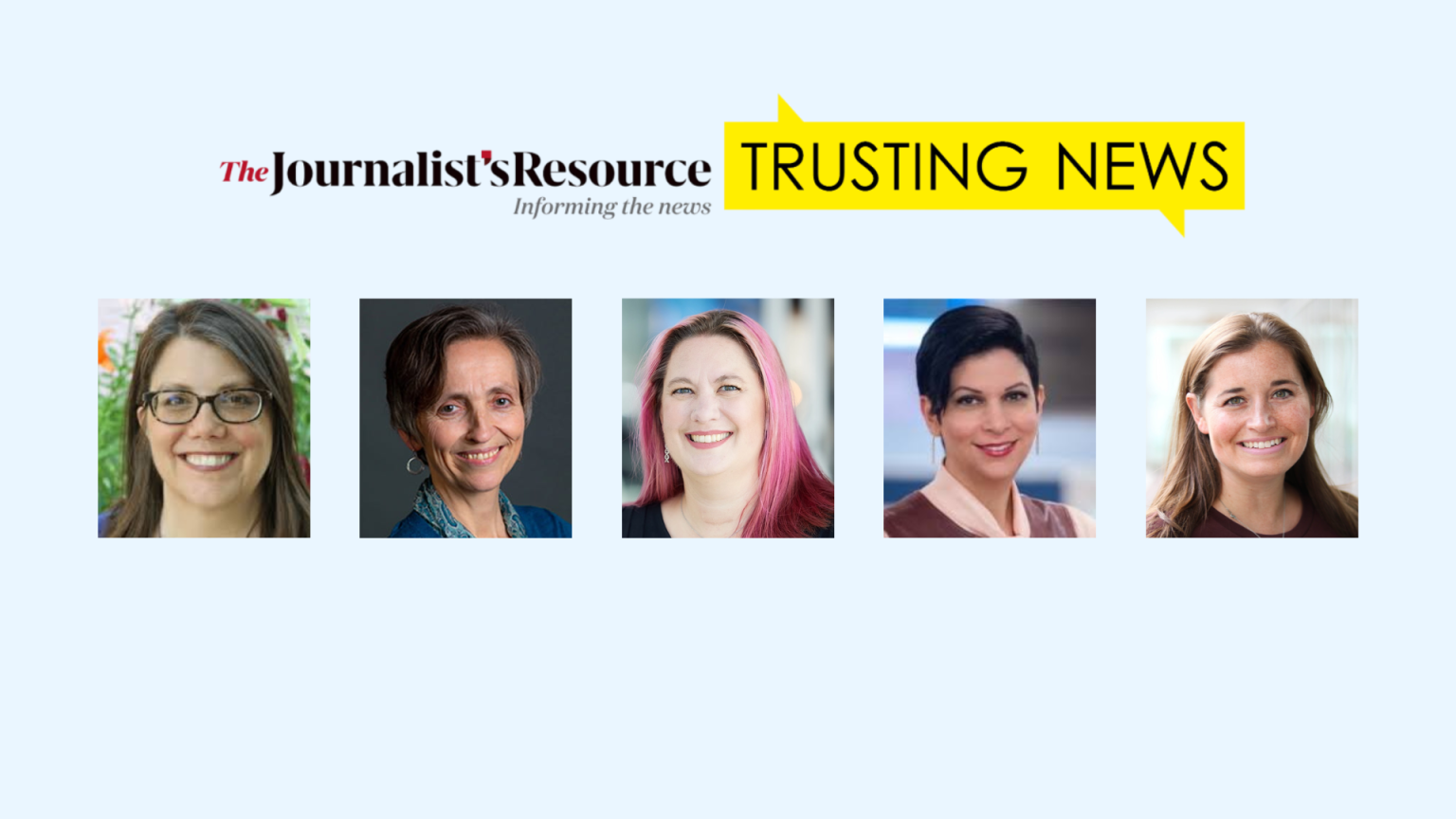Listen to the article
In an era where misinformation can spread faster than facts, journalists are facing a growing challenge: convincing audiences to trust accurate health reporting over false claims that can endanger public health. Despite the life-saving potential of responsible health journalism, many consumers continue to place their faith in unverified or deliberately misleading information.
This troubling trend has prompted a strategic partnership between Trusting News and The Journalist’s Resource, a project housed within Harvard Kennedy School’s Shorenstein Center. The collaboration aims to equip reporters with essential tools for restoring audience trust and effectively delivering factual health information to communities inundated with misinformation.
Health misinformation poses unique dangers compared to other forms of false content, as it can directly impact personal medical decisions and public health outcomes. During the COVID-19 pandemic, this became painfully evident as misleading claims about treatments, vaccines, and prevention measures complicated public health responses and potentially cost lives.
The problem is compounded when influential public figures amplify false health claims. Journalists find themselves in the delicate position of needing to correct the record without inadvertently spreading the very misinformation they seek to debunk—a challenge that requires both journalistic skill and ethical judgment.
Media experts have observed that simply presenting facts is often insufficient in a polarized information environment. Audiences tend to process information through existing belief filters, sometimes rejecting accurate reporting that contradicts their preconceptions while accepting false claims that align with their worldview.
“The relationship between news organizations and their communities has fundamentally changed,” notes a recent study from the Reuters Institute for the Study of Journalism. “Trust can no longer be assumed but must be actively earned through transparency, engagement, and demonstrated value.”
Health misinformation presents particular challenges as it often exploits fear and uncertainty. During health crises, people naturally seek information to protect themselves and their families, creating vulnerability to misleading claims that offer simple solutions or confirm existing biases.
The upcoming collaborative webinar between Trusting News and The Journalist’s Resource will tackle these issues head-on, providing practical strategies for journalists covering health topics. Participants will learn techniques for responsibly reporting on misinformation without amplifying it—a delicate balance that experienced health reporters have developed through years of practice.
The session will showcase real-world examples from newsrooms that have successfully navigated these challenges, highlighting approaches that have helped communities distinguish reliable health information from misleading claims. These case studies demonstrate how thoughtful journalism can serve as an effective antidote to the confusion, fear, and doubt that often accompany health misinformation.
Media scholars point out that trust-building in health journalism requires more than factual accuracy—it demands transparency about sources, clear explanations of scientific concepts, and acknowledgment of limitations in current knowledge. This approach helps audiences understand not just what health experts know, but how they know it.
The initiative comes at a critical time, as research indicates declining trust in traditional news sources coinciding with the rise of alternative information channels that often operate without journalistic standards or accountability. This shift has created fertile ground for health misinformation to flourish.
For journalists covering health topics, the stakes couldn’t be higher. Their reporting can influence vaccination rates, medication adherence, and other health behaviors with profound public health implications. Rebuilding trust in health journalism thus represents not just a professional challenge but a public service of vital importance.
The collaboration between Trusting News and Harvard’s Shorenstein Center reflects a growing recognition that addressing health misinformation requires coordinated efforts across journalism, academia, and public health sectors. By combining academic research with practical newsroom strategies, the initiative aims to strengthen the infrastructure of reliable health information at a time when it’s never been more necessary.
Fact Checker
Verify the accuracy of this article using The Disinformation Commission analysis and real-time sources.




12 Comments
This partnership between Trusting News and The Journalist’s Resource sounds like a positive step. Building trust with audiences is key to combating the spread of misinformation.
Agreed. Providing reporters with the right tools and strategies is crucial to restoring credibility in health journalism.
This is a complex challenge, but a necessary one to address. Restoring credibility in health journalism is vital for protecting public health and safety.
Absolutely. The spread of misinformation is a serious issue, and this partnership seems like a positive step towards finding solutions.
It’s worrying that many consumers still place their faith in unverified or deliberately misleading health information. This trend needs to be urgently addressed.
Absolutely. The dangers of health misinformation can be severe and far-reaching. Responsible journalism is more important than ever.
The COVID-19 pandemic has highlighted the critical role of accurate, trustworthy health reporting. Misinformation can have real consequences, so this partnership is a welcome development.
I agree. Equipping journalists with the tools to effectively deliver factual health information is a crucial step in the right direction.
This is an important issue in today’s media landscape. Restoring trust in health journalism is crucial to combating the spread of misinformation that can have real, dangerous consequences for public health.
I agree. Equipping reporters with the right tools to effectively deliver factual health information is a smart strategy to address this challenge.
The COVID-19 pandemic really highlighted the urgent need for accurate, reliable health reporting. Misinformation can be incredibly harmful, especially when amplified by influential voices.
Absolutely. Fact-based journalism is critical to helping the public make informed decisions about their health and well-being.